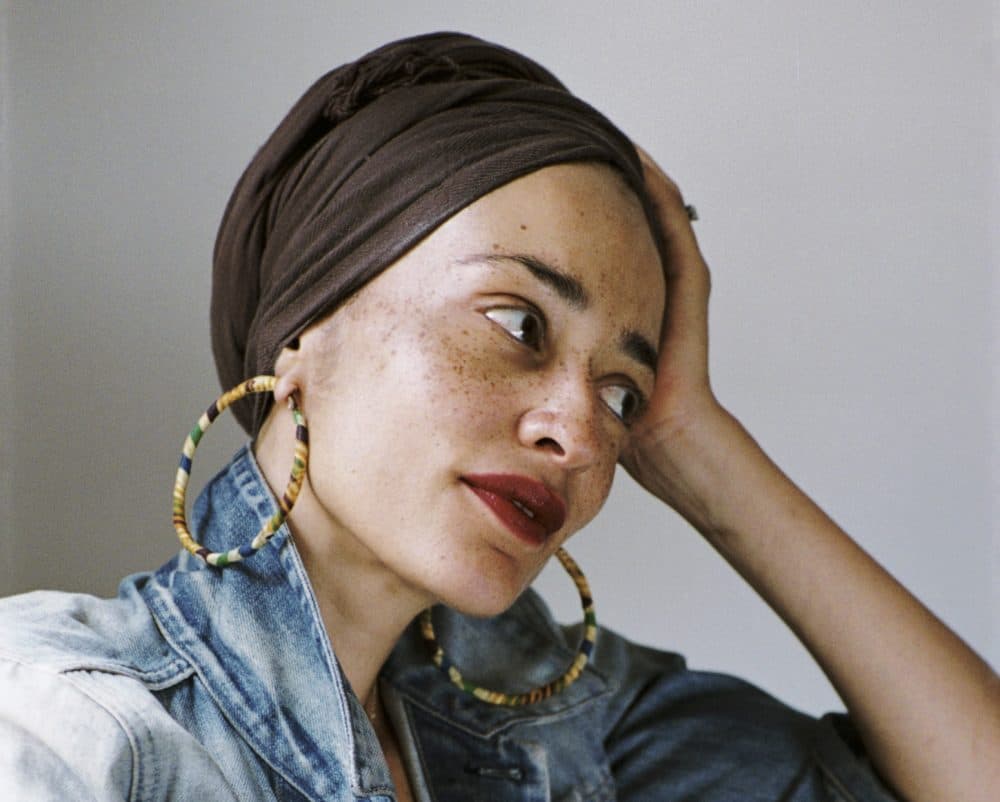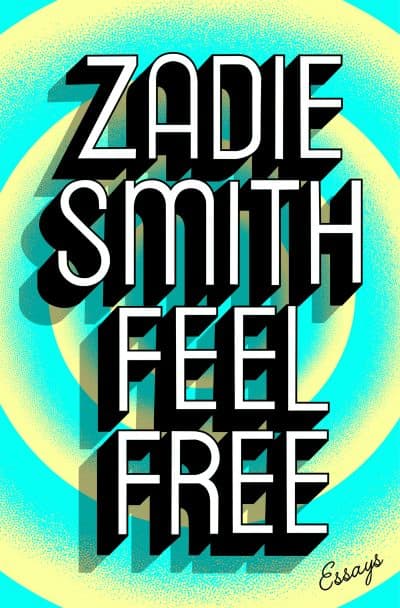Advertisement
Review
With Range And Wit, Zadie Smith’s Latest Collection Of Essays 'Feel Free'

Essays are a celebration of curiosity. Indeed, the word “essay” is based on the French word meaning “to try.” That’s all to attempt to understand something with a transparency and urgency that enlists readers in the shared endeavor.
“Personal essayists are adept at interrogating their ignorance,” Phillip Lopate, one of the masters of the form, wrote in his book “The Art of the Personal Essay.” “Just as often as they tell us what they know, they ask at the beginning of an exploration of a problem what it is they don’t know — and why. They follow the clue of their ignorance through the maze.”
Ever since the publication of her debut novel “White Teeth,” there have been readers who would follow author Zadie Smith anywhere. I was not one of them, finding her novels to be an exasperating mix of perceptive and plodding.

The range, wit and insight marbled through the essays collected in her latest compilation, “Feel Free,” have changed all that. Smith’s curiosity is insistent; hers is a vibrant, buzzing world full of dots to be connected.
Take, for example, a book review from one of the collection’s five sections. Smith begins by examining the work of obscure Viennese writer Mela Hartwig, then, like a demented but delighted bee fertilizing one flower with the pollen of another, relates it to the astonishing facts in Marlene Zuk’s “Sex on Six Legs: Lessons on Life, Love and Language from the Insect World,” “a book that has given me almost more insect anecdotes than I know what to do with. At dinner, they don’t just end the conversation, they end dinner. It is a powerful feeling: I recommend it.”
As if that leap wasn’t audacious enough, she closes the column with a reflection on the parallels between parasites of the insect world and the work of a Susan Sontag biographer, shrewdly observing that, “…what’s interesting is how alien a sight we seem to find a female intellectual, poking and prodding her with rumor and curiosity — even after she’s died — as if she were a fat king bee of whose gender we are never sure. … We all have our faults, but not everyone gets pinned and mounted like a bug to a board and held up for all to see.”
The often unlikely intersections of Smith’s passions — for philosophy, dance, hip-hop and of course literature — generate remarkably vivid and rich insights. Though forced, her musings about Martin Buber and Justin Bieber yield some unexpected truths about the nature of authentic relationships. Her tribute to writer Philip Roth in “The I Who Is Not Me” demonstrates how an unlikely role model like Portnoy opened up her own life as a writer, and in doing so illuminated the “terrible tension” of “people experiencing impossible identities.” And her meditation on the nature of expression in “Dance Lessons for Writers” embodies what she sets out to explore, “lessons of position, attitude, rhythm, and style.”
Just read aloud this brilliant analysis of Michael Jackson:
Every move he made was absolutely legible, public, endlessly copied and copiable, like a meme before the word existed. He thought in images and across time. He deliberately outlined and then marked once more the edges around each move, like a copy drawing a chalk line around a body. Stuck his neck forward as if he was moving backward. Cut his trousers short so you could read his ankles. Grabbed his groin so you could better understand its gyrations. Gloved one hand so you might attend to its rhythmic genius, the way it punctuated everything like an exclamation mark. Toward the end, his curious stage-wear became increasingly tasked with this job of outline and distinction. It looked like a form of armor, the purpose of which was to define each element of his body so no movement of it would pass unnoted. ... It wasn’t subtle, there was no subtext, but it was clearly legible.
The surgical, ruminative prose evident in that passage can occasionally be wearying when applied to less familiar subjects, such as a painting by Balthasar Denner or a consideration of the artistic depiction of corpses. Some of the cultural criticisms in the book’s three central sections (“In the Audience,” “In the Gallery” and “On the Bookshelf”) are a bit too digressive for readers who aren’t already intimate with the movies, books and art under her microscope.
A similar wordiness sometimes infuses the political essays in the book’s opening section, “In the World,” as well, as in this clunker from “Northwest London Blues”: “On market day we permit ourselves the feeling that our neighborhood, for all its catholic mix of people and architecture, remains a place of some beauty that deserves minimal preservation and care. It’s a nice day out, is my point.”
But more often than not, in this and all her essays, Smith’s apparent meanders are brilliant set-ups. What begins as an apparently aimless travelogue through her old neighborhood leads to an astute observation about the value of subsidized public spaces: “Well-run libraries are filled with people because what a good library offers cannot be easily found elsewhere: an indoor public space in which you do not have to buy anything in order to stay.”
And that in turn lays the foundation for broader meditation on the role of the state: “It has never been hard for me to pay my taxes because I understand it to be the repaying of a large, in fact, an almost incalculable, debt,” she writes. “… I don’t need the state now as I once did; and the state is not what it once was. It is complicit in this new, shared global reality in which states deregulate to privatize gain and re-regulate to nationalize loss.” For that last pithy sentence to not just inform, but to move us, we needed to first soak up the balmy day in Willesden Green.
Zadie Smith’s essays invite us along on a ramble through time, sensation, beliefs and oddities, often without destination. But always, she leaves us with a sure recognition of when we have arrived.
Zadie Smith will join WBUR’s Meghna Chakrabarti for a conversation about her latest collection of essays “Feel Free” on Monday, Feb. 26, at 6 p.m. at the Coolidge Corner Theatre in Brookline.
